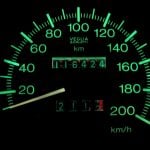Words Matter
When discussing electricity, in this case solar panels and energy, it is important to use the right terminology to make sure everyone understands what you are talking about. Two of the most commonly confused terms are Watts and Watt-hours. While closely related, they are very different from each other. We thought we’d spend a moment straightening out the terms.
Watts
A Watt is an instantaneous measurement of power. It is abbreviated as simply W. Technically, it is “the work done at the rate of one joule per second”. Just sort of rolls off the tongue, doesn’t it? Watts is the rate at which energy is made or used. A 10W light bulb is using 10 Watts of power at any time it is on.
Watts = Volts (V) x Amps (A), so you can increase the wattage by either increasing the volts or the amps, or both.

Electricity is often compared to water, you’ll hear people say the flow of electricity. Imagine the electrical wires as pipes, and the electricity as water. Volts is like water pressure, and amps are the water flow. Therefore, Watts is how much force can be applied with the water, for instance if it is turning a watermill to grind grain. If you increase either the water pressure (volts) or speed up the water flow (amps), the water wheel will spin faster, grinding the grain faster.
Watt-Hours
Watt-hours (Wh) is the accumulation of power over a period of time. It is energy. If you run your 10W light bulb for an hour, it will consume 10Wh. In two hours, 20Wh.

Back to that water mill, it’s how much grain was ground. Where Watts was speed, Watt-hours is quantity.
Driving a Car as an Analogy for Watts Vs. Watt-Hours
Another useful analogy is considering Watts to be speed of your car, and Watt-hours to be the distance your car went over time. So a car that goes 65 mph (speed which is similar to Watts) goes 65 miles (distance which is similar to Watt-hours) after one hour.

kW and kWh
A kilowatt, or kW, is 1000 Watts. A kilowatt-hour, kWh, is 1000Wh. Due to the large amount of energy a house typically uses, your electric bill is generally in kWh. Over a month, you may have used 900kWh, or 900,000Wh. You can see that number on your bill where you are charged a certain amount of money per kWh.
Electricity Supply $0.08963 x 900kWh $80.66
Why Should I Care?
When discussing how much power (Watts) or energy (Watt-hours) you use, and therefore need to generate with your solar system, it is very important to make sure you are using the right terms. If you know how many watts your loads draw, but don’t know how many Watt-hours used in a day, it is impossible to design a solar system that will make the right amount of energy for you.
If you are drawing a total of 2000 Watts, without knowing for how long, there is no way to know what size solar system you need. Are those 2000W running for 1/2 hour, in which case you’d need to generate 1000Wh (2000W x 0.5 hour), or 1kWh, or is it running for 12 hours, needing 24kWh (2000W x 12 hours)? In both cases, the load is 2000W, but the resulting energy use is wildly different, 1kWh vs 24kWh. The first could be generated by a 300-Watt solar panel, the latter would need 7,200 Watts of solar.
Amps and Amp-Hours
Just as there is a difference between Watts and Watt-hours, there is the same difference between amps and amp-hours. Amps, or A, is the rate of the current, how fast it is flowing. Back to the water analogy, the flow rate of the water can be in gallons per minute (GPM) or liters per minute (LPM). How fast the electricity is moving in the wire is amps.

Amp-hours, or Ah, is the amount of energy charge in a deep-cycle battery that will allow one amp of current to flow for one hour. For example, 4 amps for 2 hour equals 8 amp-hours (4A x 2 hours = 8Ah). Back to the water, it is how much water accumulated when flowing into a bucket for an hour. With water it is measured in gallons or liters, with electricity it is amp-hours.
Batteries are generally rated in both volts and amp-hours. The amp hour rating tells you how much energy the battery can store. A 200Ah 12V battery stores twice as much energy as a 100Ah 12V battery. Just like a 2 gallon bucket can hold twice as much water as a 1 gallon bucket.
I hope this helps you straighten out the different terms and allows you to accurately define your electricity needs. I don’t know about you, but I’m suddenly thirsty for a glass of water right now.
